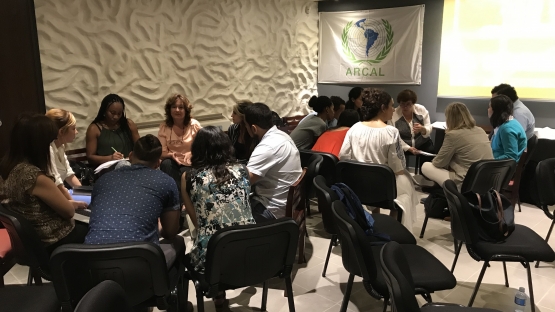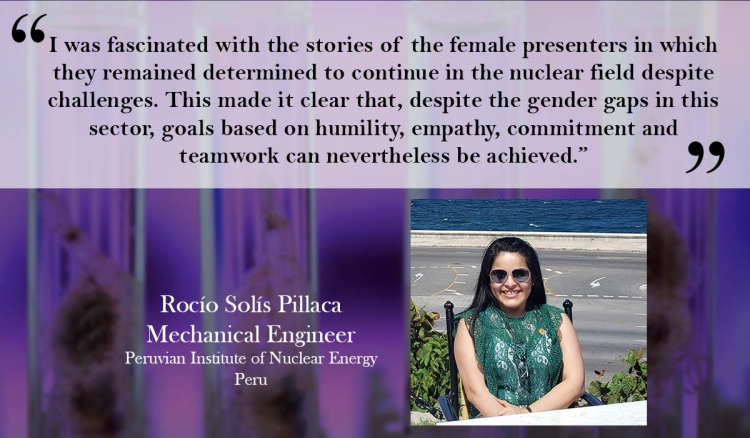A technically-skilled, highly-motivated and diverse workforce is a necessary precondition for the sustainability and success of the nuclear industry. The IAEA works closely with policymakers from the Regional Cooperation Agreement for the Promotion of Nuclear Science and Technology in Latin America and the Caribbean (ARCAL) to promote the role of nuclear science in early education and to subsequently support the continued engagement of young professionals with the nuclear sector. Under an ongoing, regional technical cooperation (TC) project[1], the Agency has organized a series of workshops, entitled ‘Future Nuclear Leaders in Latin America and the Caribbean,’ in order to identify, support and empower young professionals in the field. The latest such workshop was held from 14 to 18 October in Havana, Cuba, and it placed a special emphasis on encouraging young, female professionals to act as ‘nuclear advocates’ in their respective national institutions.
Organized in cooperation with Cuba’s Agency of Nuclear Energy and Advanced Technologies (AENTA), the week-long event began with panel discussions, chaired and attended by Agency staff, high-level national decision-makers and representatives of the group Women in Nuclear (WiN). Subsequently, a series of lectures delivered by IAEA and international experts clarified the diverse applications of nuclear technologies, as well as the TC programme’s role in disseminating those technologies. Finally, a series of practical, group exercises on the best practices and values of leadership were held.
The workshop was attended by 33 participants—25 women and eight men—from Argentina, Bolivia, Colombia, Cuba, the Dominican Republic, El Salvador, Honduras, Nicaragua, Peru and Venezuela. Participants were young professionals who currently work in nuclear-related areas, ranging from nuclear medicine and food irradiation to nuclear safety and security, and who have stood out for their leadership potential in promoting the use of “atoms for development” in their institutions.
Here is what some of them have had to say about the programme:












